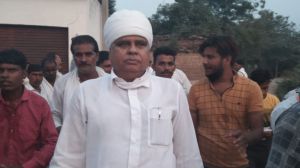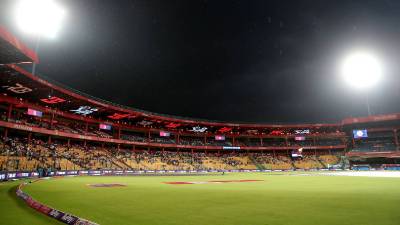Stay updated with the latest - Click here to follow us on Instagram
Vintage Blend
Costume designer Subarna Ray Chaudhuri discusses her penchant for period films,her Lootera adventure and why she doesnt rely on the internet for research
If award-winning costume designer Subarna Ray Chaudhuri called Lootera a labour of love,it wouldnt be far from the truth. In 2006,soon after her first big Bollywood film Parineeta had released,filmmaker Vikramditya Motwane called her. The first draft of Lootera then was simply called Last Leaf. He gave me references for the character of the hero,Varun,and I was intrigued. I made a presentation,and we discussed the project for over a month,but eventually it got shelved. Udaan happened instead. But I kept pestering Vikram: When is Last Leaf happening? Im so eager to work on it. He kept saying Itll happen. Then he called me in 2011, says the 38-year-old. And the rest,as they say,is a sepia-tinted love story.
For a Fine Arts graduate,who worked as an executive producer at Zee TV in Kolkata,films happened quite by chance. A film project with art director Nitish Roy in Hyderabad lead to a stint as head of the costume department at Ramoji Film City and soon after,international projects with production designer Nandini Mahtab followed. Those projects taught me a lot about being systematic and methodical. I learnt that your research has to be perfect and your homework has to be right, says Chaudhuri.
A lesson that stood her in good stead while working with a visionary like Motwane. His perception of Varun and Pakhi (the characters played by Ranveer Singh and Sonakshi Sinha) was not filmi. He wanted the characters to look real and straight out of the 50s. He kept telling me,I dont want typical Bollywood flamboyance,nothing gaudy,
recalls Chaudhuri.
For her research,she decided not to rely on the internet. Google will only give you information on movies of the era. But we wanted to make it real, she says. Chaudhuri turned to Mahtab and her historian husband PC Mahtab,from the erstwhile zamindar lineage of Bardhaman Rajbari or Burdwan for help. I also visited other zamindar families,saw their albums,portraits and referenced what the older generations wore, says Chaudhuri,who rummaged through the winterwear collections of relatives and friends. She even took an old jacket of her fathers,altered it and dressed one of the supporting cast members in it.
I sourced vintage jewelled tie-pins,cuff-links and enamelled saree pins that were worn in that era from an antique shop in New Market,Kolkata, says Chaudhuri. Frequent trips to the city yielded Bengali handlooms,tant saris,Dhaniakhali,Dhakai,Bhagalpuri and matka silk saris. I discovered that in the 1950s,due to the British influence,they had georgette yardage,which younger women used as sari bases to stitch delicate borders on. Ive used georgette saris with crochet borders for Sonakshi. All her saris are teamed with high back blouses with elbow-length sleeves, says Chaudhuri. Singhs character was given high-waisted pants,muted colours,shirts with pockets and inverted pleats.
Motwane wanted the clothes to look naturally aged,so a stringent aging process was undertaken. After they were stitched,instead of sending them to a laundry,we sent the clothes to the dhobi ghaat for a wash. This process leads to wear-and-tear and gives clothes a home-washed look. They were washed several times and we also used bleach in different concentrations and tea liquor to age them, she says. Motwanes strict no ironing dictat meant Singhs costumes were washed,dried on a hanger and given to him to wear. Even Sonakshis saris had to look worn and naturally crumpled, says Chaudhuri. Apart from the painstaking preparation,what will also stay with Chaudhuri were the challenges that the unit faced. She recalls an incident when she and her assistant were buried under four feet of snow in Dalhousie and were rescued by local shopkeepers. Treacherous treks to the location through snow only added to the overall experience,she says.
Having worked on Parineeta,Eklavya,Lootera and the forthcoming Gunday (set in 80s Kolkata),does she worry about being typecast as a period specialist? I definitely dont want to be known as the Kolkata specialist. Eklavya was based in Rajasthan,and I can research on other regions too, she says.
While her recent release Ghanchakkar,with its over-the-top costumes,was a departure from her usual style,Gunday promises to be a film to watch out for. Working on a period film gives me pleasure. I consciously pick projects which allow me to research a certain era and delve into the past, she says.







